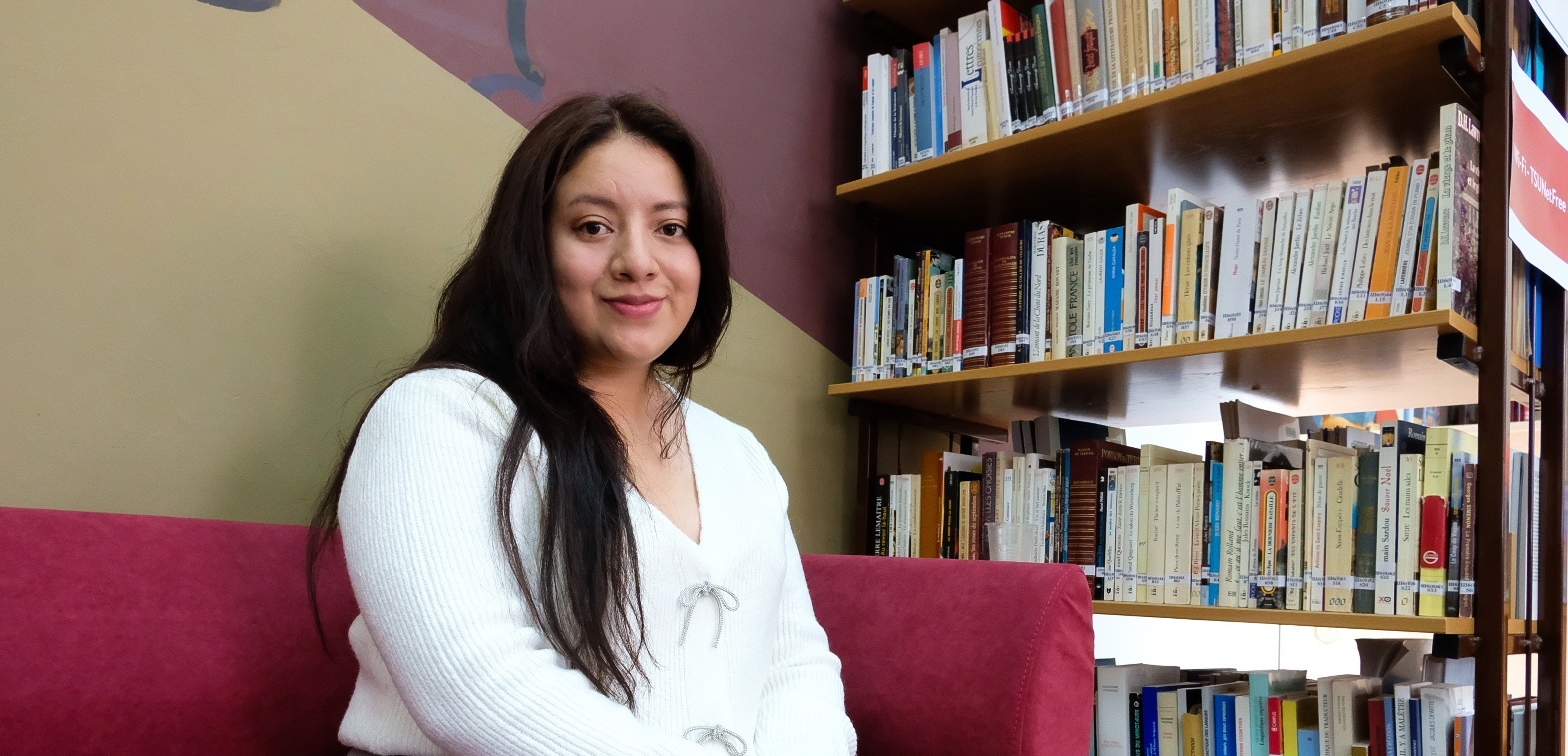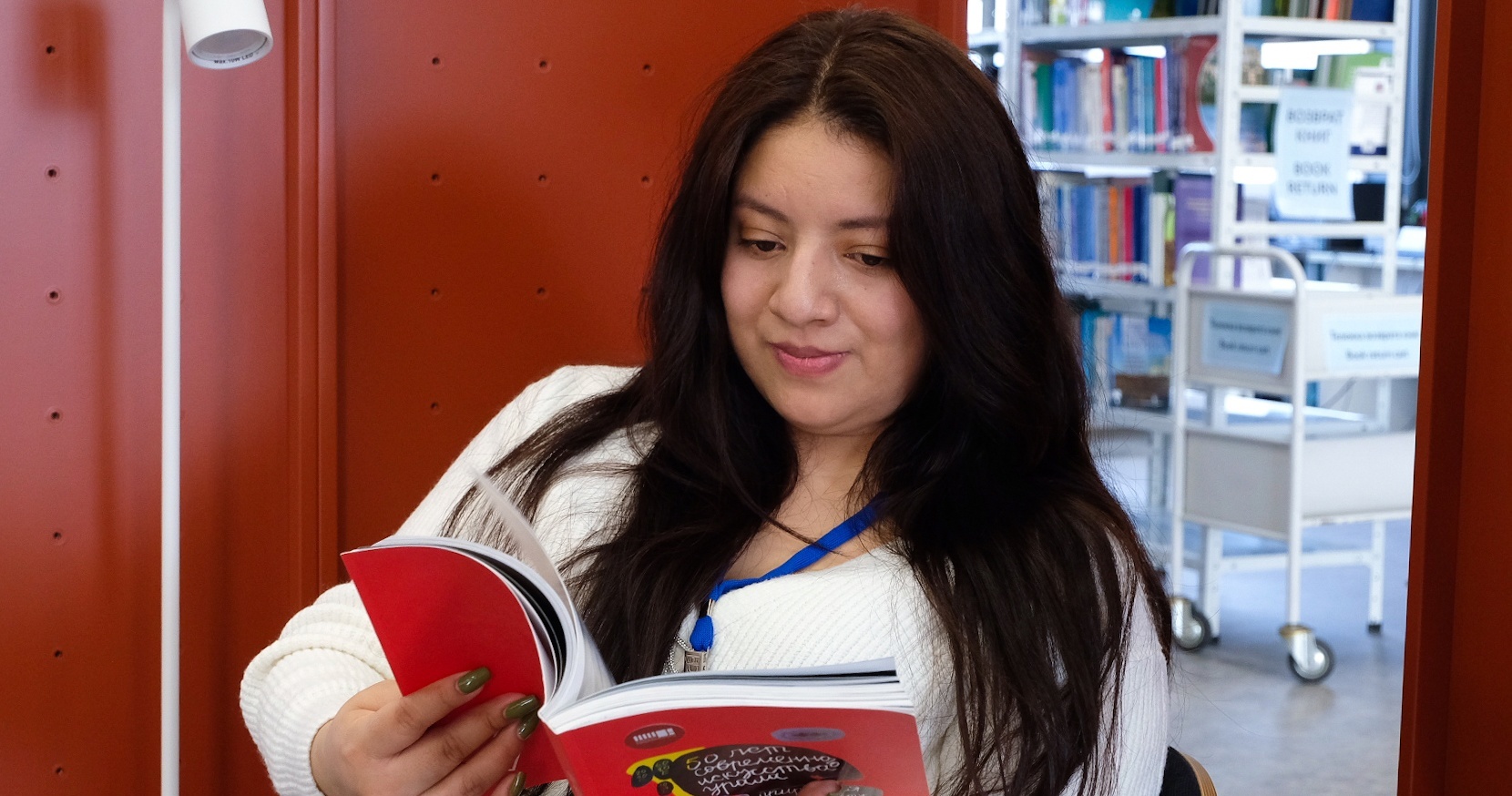Buenas fr om Ecuador! This time we would like to introduce you not to a student, but to the librarian of the International Resource Center (IRC) of Tomsk State University and assistant of the Department of Ichthyology and Hydrobiology of the Biological Institute, Ximena Calderon.
Ximena Calderon came to Tomsk 6 years ago to enroll in the Master's program at the Biological Institute and later completed her PhD. Inspired by Siberian nature, she decided to stay in Russia and now works at the university. Siberian mosquitoes, serious people, and an oversized jacket — find out what else Ximena encountered in Tomsk in the interview.

After completing my bachelor's degree in my hometown of Loja in southern Ecuador, I began working in the Galapagos Islands. At that time, I liked to study various subjects on the Coursera platform, including biology and ecology courses from TSU. I liked them a lot, so I wrote to my professor and he told me about the Biodiversity Master's program at Tomsk State University. This attracted me and I decided to move to Russia to continue my studies. Siberia has a special nature and it is interesting to study biology here, so I decided to do my PhD studies in Tomsk as well. There were some challenges during my studies because of COVID-19. We wanted to collect mosquitoes from Ecuador and Russia and analyze them, but when the pandemic started, the plans changed completely. So I started to study Siberian mosquitoes, and it turned out to be very interesting.
I did not know much about Russia before enrolling, and I had very little time to prepare for the trip. When I said that I would be leaving to study in Siberia in two weeks, my parents were very surprised. They thought that with my cheerful personality it would be difficult to live in this country, because Russian people are very serious. My family thought that Russians like robots — they almost never show their emotions, but that did not scare me. It turned out that here indeed many people often walk around with serious faces, but that is okay. It is so cold in Siberia, so it is just impossible to smile all the time! I discovered that people in this country are very friendly and honest. It does not matter what time you call them — they will always help and give advice. Therefore, my husband's family are very supportive, and they don't care wh ere I'm from or whether I speak Russian well.
When I first arrived here, I thought it was very cold outside, even though it was not winter yet. It was a shock! In my hometown, the minimum temperature can be around +15 degrees. However, here it's not like that at all, and it's amazing. The first year in this country was challenging. It is not easy to get used to new, unfamiliar conditions, and I lacked vitamin D (many foreigners here have a problem with this). At the beginning, I did not even have a jacket. When my friend and I went to the store, I decided to buy the biggest jacket so that I could put three more layers of clothes under it. I ended up choosing an oversized one: it was huge, just like a blanket. However, I fell in love with Tomsk no matter how cold it was. It looks fabulously beautiful in winter. As a biologist, I am particularly attracted to the environment in this city.

TSU has a large number of students of various nationalities who are supported by the university (for example, social assistance or grants). Students have many numerous opportunities for self-realization. Moreover, if a student does not really like the study field, they can choose another field. This is great, because it allows us to develop both as professionals and as individuals. I used to think: "How can I work if I don't speak Russian very well?" Then I found supervisors and colleagues who helped me with this. They spoke to me a lot in Russian, and I practiced. Of course, I do not speak Russian fluently, but I understand everything. This allows me to work as a laboratory assistant at the Biological Institute and as a librarian.
I like that many lecturers can speak English well; it helps a lot and makes the work easier. It is also a bit unusual for me to see lecturers having fun together with students at university events. We can all sing, dance, and play musical instruments in a friendly atmosphere and happy memories remain after such events, but there is a big distance between professors and students in my country.
Among the dishes I tried for the first time in Russia, I particularly liked pancakes (both sweet and savory) and borscht. I ate solyanka and ukha: I think it tasted very unusual. I did not like salo at all; I tried it on New Year's Eve, and it seemed very strange and disgusting.
I miss my parents and friends, of course, but now I have my family and my husband here. This is a new home, and I feel comfortable here. Now my life is in Russia, but I cannot say for sure what will happen later.
Tomsk is a student city with a high quality of education. The cold climate and difficult language can be intimidating for international applicants, but there is good support from teachers and universities in general, and there is a large community of international students who can help.